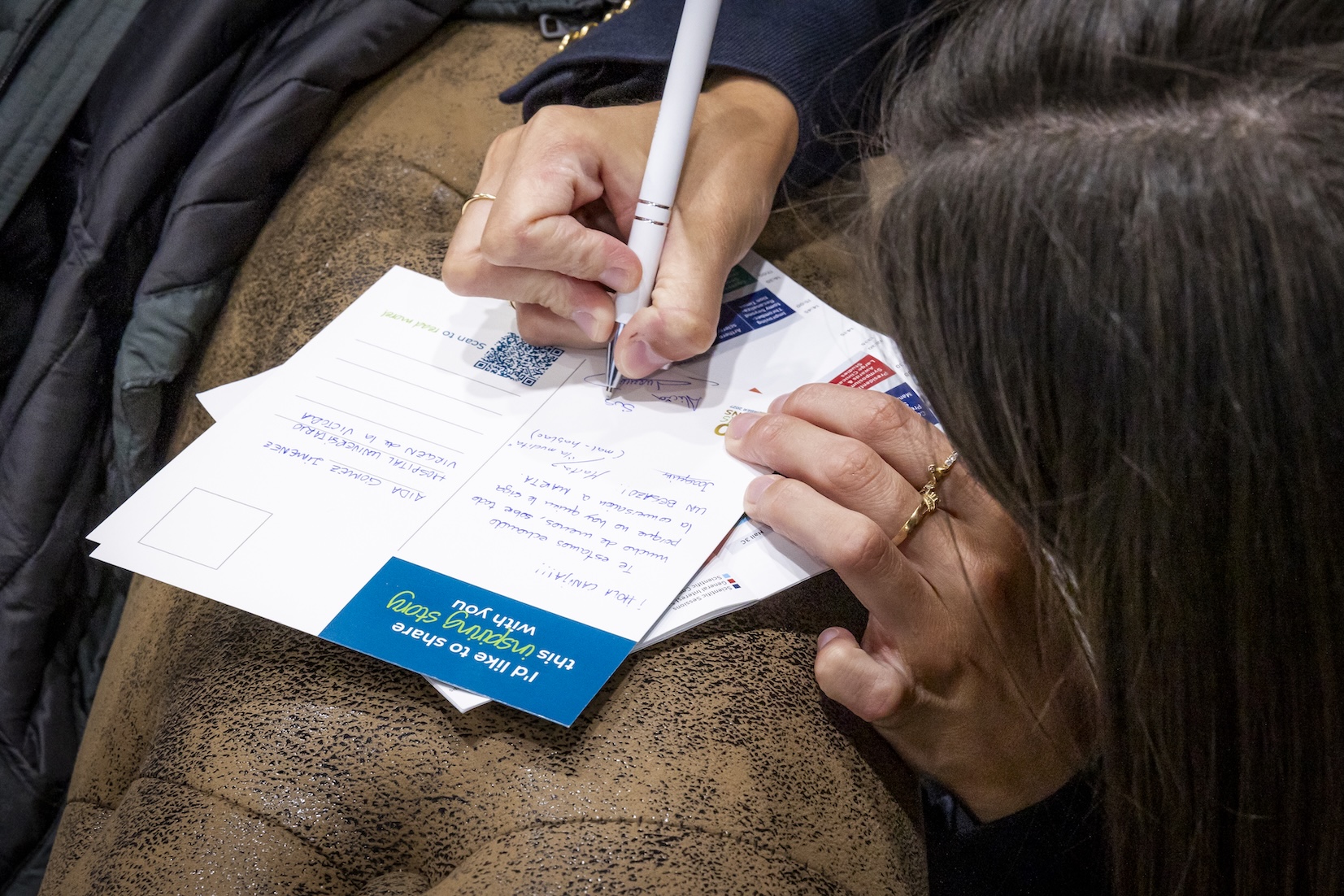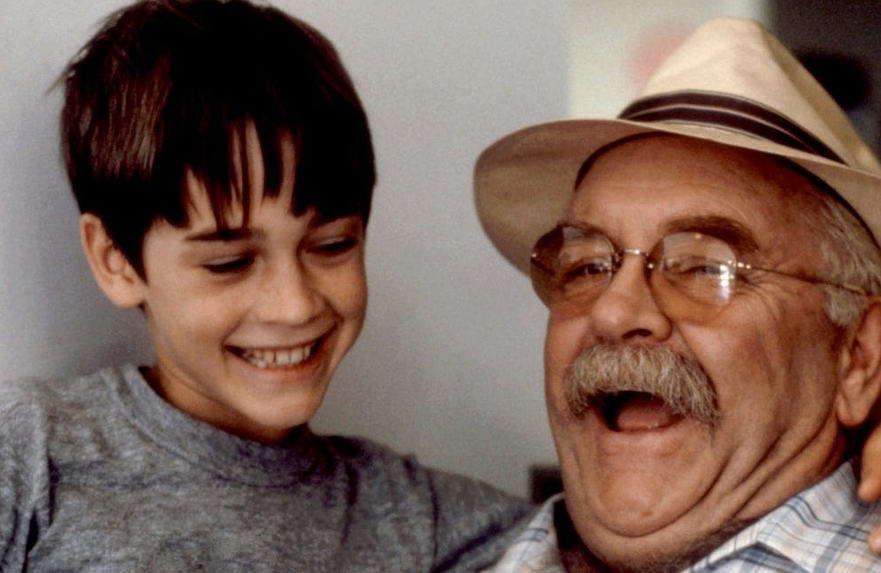
JIKA Anda diminta menyebutkan tahun kritis untuk perawatan stroke di Rumah Sakit Universitas Torrecárdenas, dan Anda menjawab tahun 2021, maka Anda benar. Karena pada tahun itulah rumah sakit di Almería ini merawat 120 pasien stroke iskemik dengan terapi reperfusi, sehingga meningkatkan angka rekanalisasi menjadi 40 persen. Tahun ini juga menjadi tahun ketika mereka memenangkan penghargaan berlian ESO Angels pertamanya.
Jika Anda menjawab 2019, Anda tetap benar, karena pada tahun itulah rata-rata waktu door-to-needle turun setelah 40 menit – 20 menit di bawah target yang telah ditetapkan.
Jika Anda mengatakan pada tahun 2018, tentu saja Anda benar, karena pada tahun itulah unit stroke dengan lima tempat tidur dibuka pada bulan Oktober, dan Rumah Sakit Universitas Torrecárdenas menjadi pusat rujukan bagi jaringan stroke setempat.
Jika Anda mengatakan pada tahun 2017, Anda benar, karena pada tahun itulah pasien stroke pertama di rumah sakit ini dirawat di CT.
Jika Anda mengatakan tahun 2016, Anda akan langsung menyadarinya, karena pada tahun itulah ahli neurologi yang sangat terampil pulang ke Almería. Salah satu hal pertama yang dilakukan Dr Patricia Martínez Sánchez setelah tiba dari Madrid adalah membuat protokol stroke di Rumah Sakit Universitas Torrecárdenas.
Dan jika Anda menjawab 2013, Anda tidak akan salah. Karena pada tahun itulah Joaquín Alberto García Gálvez menjadi kepala perawat neurologi di Rumah Sakit Universitas Torrecárdenas, seorang perawat berpengalaman yang profesinya juga merupakan panggilannya.
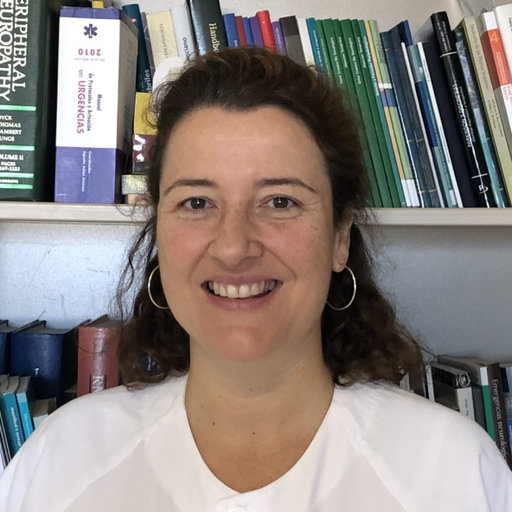
DOKTER Martínez kembali ke Almería melalui Complutense University of Madrid tempat ia belajar kedokteran, dan Rumah Sakit Madrid Universitario La Paz tempat ia berspesialisasi dalam neurologi.
La Paz memiliki salah satu unit stroke pertama di Spanyol, yang dipimpin oleh Prof Exuperio Díez Tejeor dan penerusnya, Dr. Blanca Fuentes. Di bawah pengawasan mereka, ia memutuskan untuk mendedikasikan dirinya pada penyakit serebrovaskular.
Ketika Dr Martínez bergabung dengan Rumah Sakit Universitas Torrecárdenas pada tahun 2016, rumah sakit ini tidak memiliki unit stroke dan tidak memiliki protokol stroke. Saat ini, rumah sakit yang sama ini memiliki tim neurologi intervensi dan 24/7, serta dokter rehabilitasi, fisioterapis, terapis wicara, dan terapis okupasional di unit stroke. Tingkat rekanalisasinya telah meningkat sebesar 400 persen.
70.000 penduduk Almería sekarang dilayani oleh jaringan stroke provinsi yang terdiri dari pusat stroke komprehensif (Rumah Sakit Universitas Torrecárdenas) dan dua rumah sakit regional siap stroke. Tanggung jawab untuk aliran pasien yang optimal antara pusat dan jari-jari berada di tangan Komite Stroke Provinsi tempat Dr Martínez menjadi koordinatornya.
Di Torrecárdenas itu sendiri, catatan disimpan tidak hanya dari waktu door-to-needle dan door-to-groin, tetapi dari setiap menit yang menandai setiap komponen jalur dari awal hingga pengobatan. Hal ini mengarah pada penyempurnaan seperti pengambilan sampel darah di ambulans, dan langkah-langkah untuk memastikan tes tidak diulang. Saat pasien tiba di unit gawat darurat, pengatur waktu diaktifkan untuk mengukur menit yang berlalu sebelum gurney didorong ke pemindai CT.
Dapat dikatakan bahwa dampak terbesar terhadap waktu perawatan berasal dari perawatan di CT, yang secara resmi menjadi bagian dari protokol stroke pada tahun 2021, juga pada tahun konsultan Angels Alicia Arjona memimpin tim Torrecárdenas dalam pelatihan simulasi, dan protokol FeSS diimplementasikan dalam perawatan pascaakut.
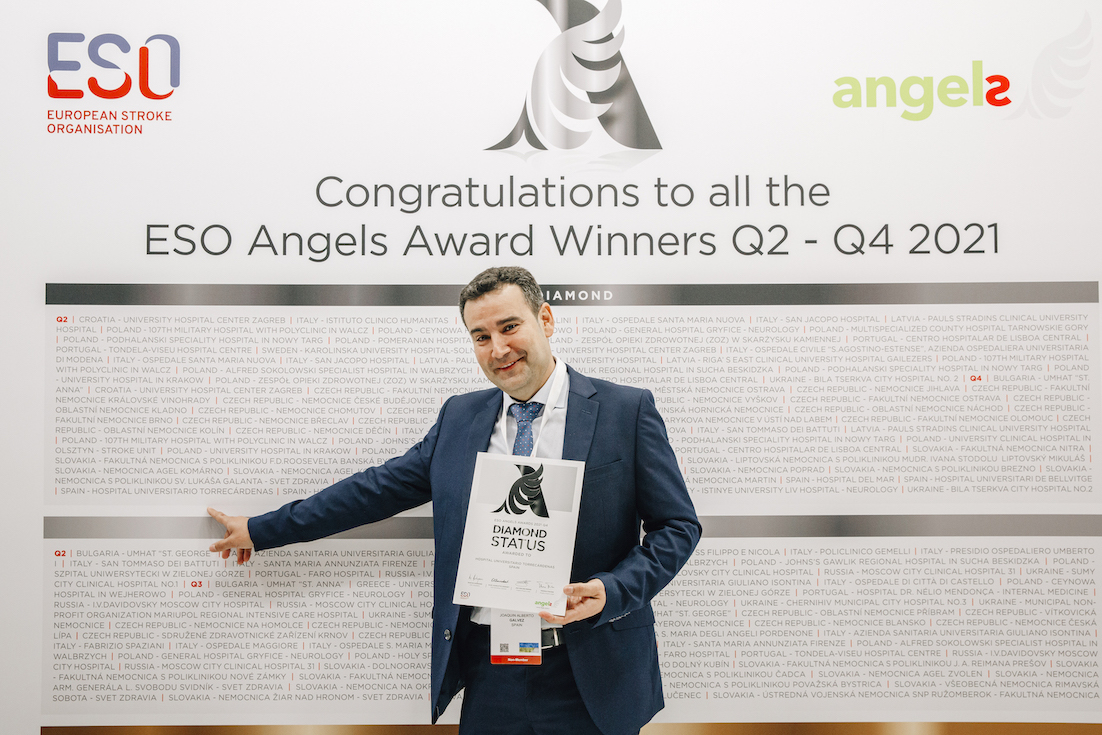
KETIKA Alicia mengenal Joaquín García Gálvez pada tahun 2019, ia segera mengenali titik terang yang dapat membantunya mengubah perawatan stroke di Andalusia. Yang
kepala perawat dari Rumah Sakit Universitas Torrecárdenas adalah seorang pahlawan super tanpa tanda jasa yang advokasinya untuk pasien stroke termasuk kampanye untuk intervensi seperti perawatan di
CT dan partisipasi dalam uji coba QASC dan ESO Angels Awards. Dia, bersama dengan Raimuna Caro Quesada dari Seville, akan memainkan peran penting dalam Komite Pengarah Perawat Andalusia, yang dibentuk selama pandemi untuk membakukan perawatan stroke di wilayah tersebut.
Joaquín adalah orang yang percaya pada perbaikan berdasarkan data yang memimpin pendaftaran Rumah Sakit Universitas Torrecárdenas dengan RES-Q, sebuah registri yang dibuat khusus untuk memantau ukuran kualitas terpenting untuk perawatan stroke. Dengan mencatat dampak peningkatan yang diterapkan oleh Dr Martínez, intervensi ini mendorong Rumah Sakit Universitas Torrecárdenas ke dalam perusahaan yang sangat terpilih.
Rumah sakit yang mencatat data perawatan dalam RES-Q secara otomatis memenuhi syarat untuk mendapatkan ESO Angels Award. Untuk menentukan status penghargaan mereka, kinerja mereka dievaluasi terhadap serangkaian kriteria penghargaan yang sesuai dengan pedoman klinis.
Kriteria penghargaan tersebut juga berfungsi sebagai daftar periksa bagi rumah sakit yang berkomitmen untuk meningkatkan hasil bagi pasien mereka, dan sebagai mekanisme untuk mengidentifikasi dan menargetkan kesenjangan dalam kualitas perawatan stroke.
“Ini adalah alat yang sangat berguna,” kata Joaquín. “Ini memungkinkan Anda untuk melakukan refleksi secara grafis, didukung oleh data, dan tingkat kualitas yang ditawarkan kepada pasien Anda. Ini adalah cara terbaik untuk menganalisis kinerja, mencari area yang dapat Anda tingkatkan, dan mengembangkan strategi untuk mencapai tujuan nyata dalam perawatan pasien kita.
“Perubahan di rumah sakit kami sejak tahun 2019 sangat luar biasa, dan memenangkan penghargaan pada tahun 2021 mengonfirmasi sesuatu yang telah kami ketahui – bahwa rumah sakit kami bekerja dengan sangat baik.”
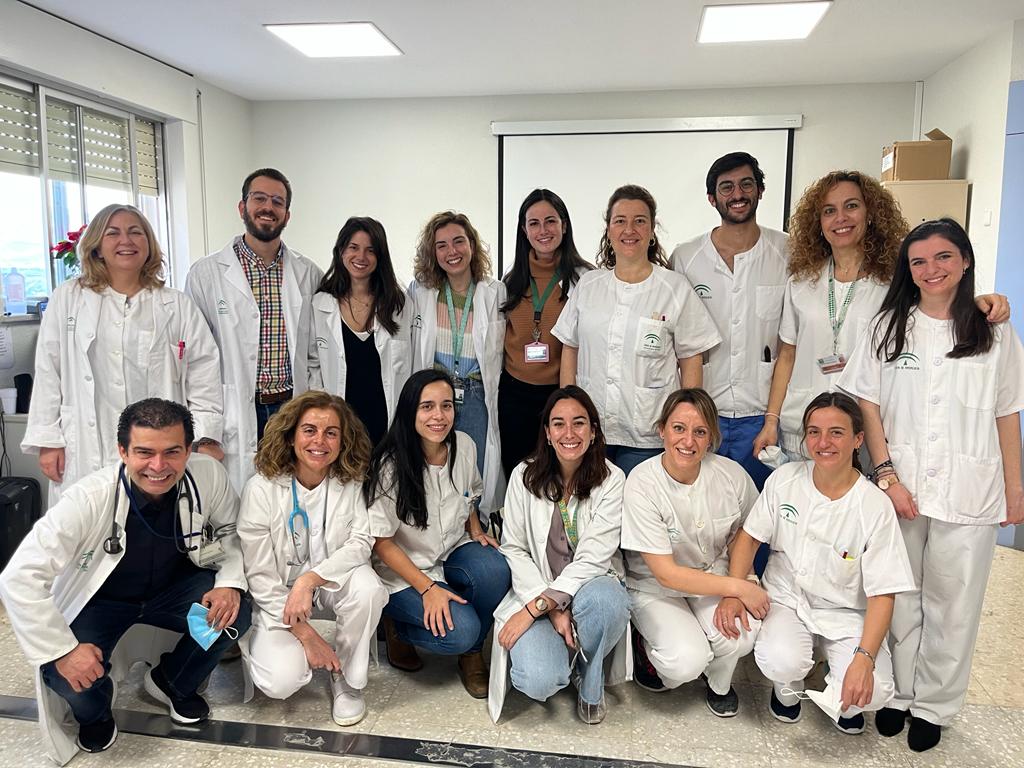
Penghargaan berlian pertama itu membuat masyarakat mereka dikenal dengan sukses, kata Dr Martínez. “Penting bagi pasien dan kerabat untuk mengetahui bahwa mereka dirawat di rumah sakit yang telah diakui karena keunggulannya.
"Ini juga merupakan sumber kebanggaan besar bahwa rumah sakit dari sebuah provinsi kecil di Spanyol dapat memberikan standar perawatan yang sama seperti rumah sakit di ibu kota Eropa. Sangat, sangat positif."
Tidak diragukan lagi bahwa tahun 2021 adalah tahun yang baik untuk perawatan stroke di Rumah Sakit Universitas Torrecárdenas. Namun jika Anda harus memilih tahun terbaik untuk perawatan stroke di rumah sakit ini, mungkin tahun 2022, tim strokenya membuktikan bahwa mereka tidak hanya mampu mencapai tingkat kinerja tertinggi tetapi juga tetap berada di sana.
Memenangkan penghargaan berlian keduanya (untuk Q4 2022) menjadikan Rumah Sakit Universitas Torrecárdenas sebagai satu dari hanya dua rumah sakit di Spanyol yang telah mencapai perbedaan ini. Rumah sakit ini tetap menjadi satu-satunya rumah sakit pemenang penghargaan di Andalusia.

